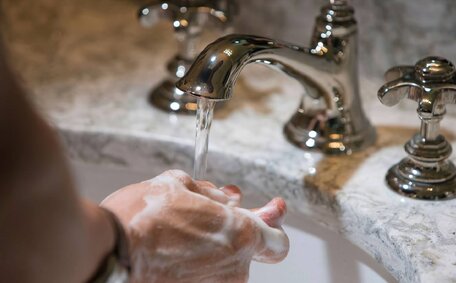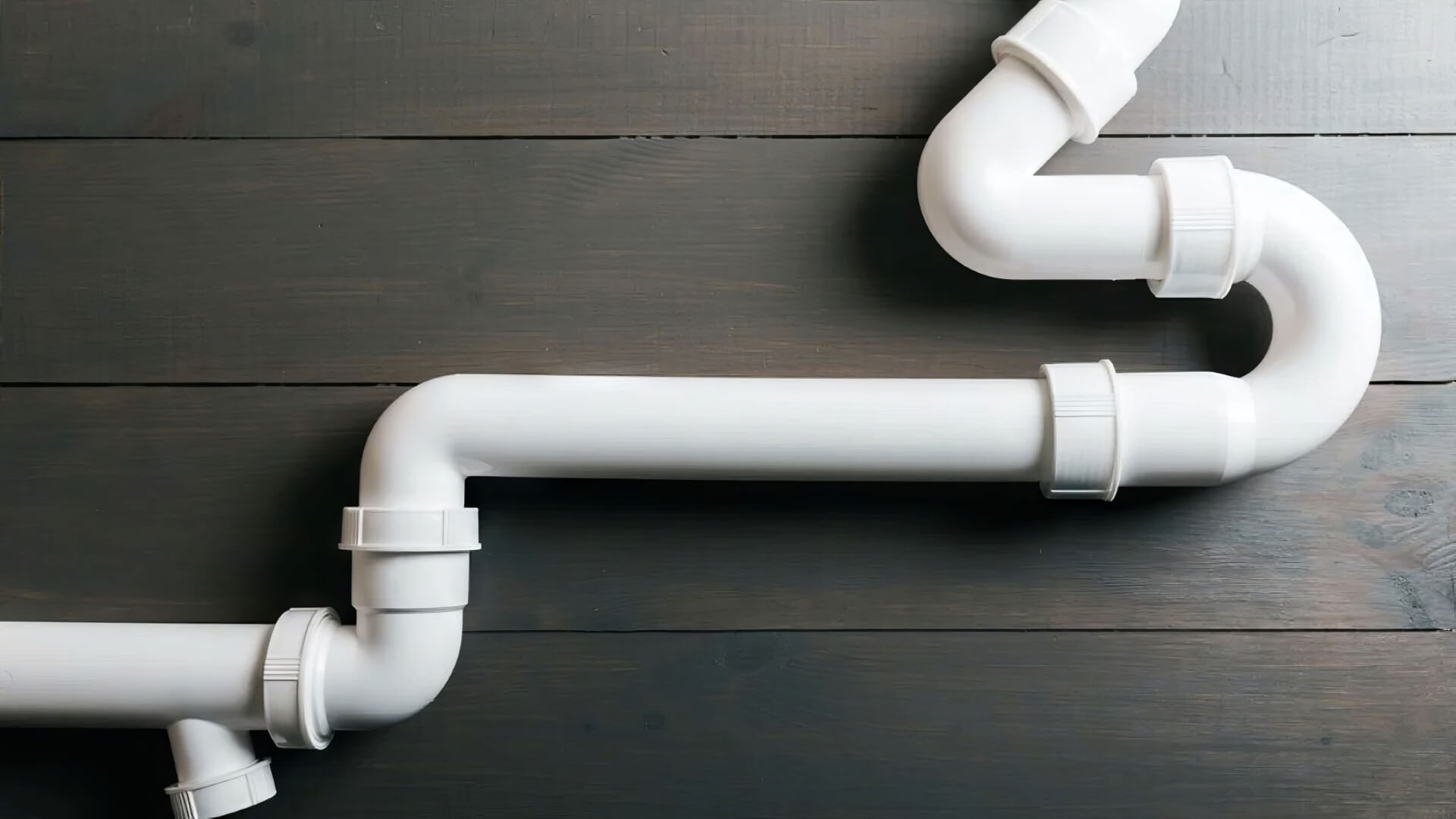Introduction to Gas Line Inspections
Regular gas safety checks are crucial for ensuring safety and compliance in Australian homes and businesses. As qualified licensed plumbers serving Lalor Park for over 10 years, Lalor Park Plumbing is committed to providing reliable guidance on gas line maintenance.
This article will delve into the critical elements of a detailed gas inspection, including:
- Signs of potential gas line issues
- Legal requirements for inspections
- The role of qualified professionals
- Preventive maintenance tips
Grasping when your gas line requires service, identifying warning signs, and knowing who to call can shield your estate from hazardous leaks. Continue reading for comprehensive advice on tackling potential problems with gas systems and best practices for inspections, which should be performed at least once as recommended.
Recognizing Warning Signs of Gas Line Issues
Being attentive to signs of potential gas line problems is crucial. Odd noises, scents, or visible compromises indicating a gas leak are serious red flags that point out issues. Key warning signs for gas plumbing issues to look out for include:
- A "rotten egg" scent, a classic symptom when you smell gas, signalling a perilous leak
- Hissing, whistling, or roaring coming from pipes or appliances
- Dead plants or dying grass near areas where natural gas appliances are connected
- Flames coming from appliances or pilot lights
- Soot buildup around appliances
- Dirt blowing around gas lines
- Corrosion or dents on lines need particular attention on pipes and gas appliance fittings
Do your part in home safety by identifying these issues early, which point to underlying problems that require Lalor Park Plumbing's professional inspection. We’re able to discern malfunctions in configurations that use gas and rectify them prior to significant harm or safety events. Never ignore these signs - schedule an appointment with us once every opportunity arises to resolve problems safely.
Visible Damage or Corrosion
Visible signs of damage or corrosion on your gas appliances suggest gas leaks can emerge, requiring immediate attention. Cracks, dents, holes, loose fittings or rust spots suggest potential gas leaks and major repair needs.
Home and business owners should assess how often both inside and outside gas lines - including those affecting the water heater - should be checked, following guidance from professionals, like:
- Cracks or holes giving out gas, potentially leading to being without gas service
- Corroded, damaged or loose joints/fittings
- Dents or bends restricting proper gas flow
- Rust accumulation
- Water puddles or moisture near pipes
Ignoring apparent defects in gas pipes can cause grave conflagration, health and safety risks, as oversight and leaks can escalate when gas can emit unchecked, potentially leading to severe natural gas leaks or device malfunctions. The distinctive "rotten egg" odour added to aid in gas leak detection enables you to smell gas more easily, though this is not a substitute for urgent repairs.
Should you detect any concerning damage or hints of any gas issues, Lalor Park Plumbing stands ready with the experience to fully inspect and rectify those issues. Our skilled gas inspector will ascertain essential refurbishments, component swaps or enhancements during gas system examinations to ensure security. Never DIY repairs on gas lines - call gas specialists like those at Lalor Park Plumbing when in need of professional assistance.
Regulatory Standards and Legal Requirements
Gas line installations and servicing must be completed in accordance with strict Australian standards to ensure safety. Key laws include:
- AS/NZS 5601.1:2013 - Gas Installations
- AS/NZS 4645.1:2018 - Gas distribution networks
- AS 4575-2005 - Gas appliances
Essentially, the AS/NZS 5601.1 standard dictates that gas lines connected to appliances your household relies on must be inspected and tested triennially. This applies to underground metallic pipe systems installed prior to 2020.
Older installations generally face higher risks, but by adhering to gas safe practices, including timely inspections, the risks of leakage, corrosion and fatigue can be mitigated. While newer systems adhere to improved manufacturing standards, the need to maintain gas infrastructure through periodic inspections remains crucial.
Certified gas company technicians like Lalor Park Plumbing can ascertain whether gas safety checks have been conducted appropriately. We ensure full legal compliance and carry out a certificate inspection to identify and rectify underlying faults early.
Overlooking mandatory safety inspection timelines not only breaches regulations but also fails to ensure your overall wellbeing and safety. Don’t take chances - let our experts service your gas lines to the required standards.
Frequency of Inspections
We recommend conducting an annual gas safety inspection, since routine degradation can engender perilous complications gradually. More frequent inspections to determine if maintenance is needed due to wear tear may be warranted in certain situations:
- Older gas line installations (pre-2020)
- Underground metallic pipe systems
- Lines linked to gas heaters, such as BBQs, gas hot water units, pool gear, and similar equipment.
- In flood, bushfire or earthquake prone areas
Outdoor gas supply apparatus must undergo a gas safety check prior to initial activation and following environmental incidents that may harm your house. Home additions or renovations that could affect gas facilities also demand checks to ensure ongoing safety.
While annual inspections cover general risks, you might ponder how often should you schedule periodic preventative maintenance checks; at least every 3 years in compliance with Australian standards is what Lalor Park Plumbing advises.
Our certified gas fitters will meticulously evaluate these components during a professional gas line evaluation, especially if you use natural gas, to pinpoint any concerns proactively, ensuring safety. We can also advise on suitable inspection frequencies for your plumbing needs at your specific location, catering to both personal and your home business needs.
Using Qualified Professionals
Entrusting a gas line inspection to anyone other than a licensed plumber poses serious risks. Those unqualified for gas work should not presume they’re able; DIY jobs or relying on unlicensed contractors could result in major safety issues.
As a licensed and insured gas fitter, Lalor Park Plumbing meets all industry qualifications to safely handle gas line inspections. Our technicians, who are fully certified and trained to strict standards, are ready to answer any questions about the gas infrastructure they inspect, ensuring their integrity:
- Conduct gas tests accurately on pipes, connections, and appliances
- Can conduct thorough assessments to identify and diagnose any faults or hazards
- Conduct repairs to the highest safety codes
- Provide legally-compliant servicing paperwork
- Offer reliable, unbiased advice on any further maintenance needed
Our expertise extends to high pressure systems, and we have the tools to thoroughly inspect your entire gas system and take corrective action where required. You can trust us to maintain safety and compliance.
Never take risks with DIY gas line jobs - engage with a qualified plumber gas expert to ensure the safety services that protect your home and family. Our 10+ years providing plumbing services in Lalor Park underpins our competency; learn more about our commitment to safe practices. Contact Lalor Park Plumbing to responsibly handle all gas line inspection and repair needs.
Best Practices for Preventive Maintenance
Implementing preventative measures where gas lines are concerned is crucial for prolonging their lifespan and mitigating emergency leak situations.
Home and business owners should check your gas installations regularly and follow these best practises recommended by licensed gas professionals:
- Make sure to conduct a visual inspection along all accessible gas lines, including checking your gas meter, monthly to check for concerning signs like corrosion, damage, loose fittings etc. Contact a professional immediately if anything is spotted.
- CSST natural gas piping should be correctly bonded to ensure a secure air supply and diminish the likelihood of lightning-related harm. A licenced technician should handle this.
- Consider proactive replacement of older brass connectors, which face corrosion risks, with modern, new gas-friendly stainless steel flex connectors.
- Ensure the vicinity around the gas piping your home remains unobstructed to facilitate simple inspections and avert inadvertent damage.
- Don’t try troubleshooting on your own; summon a seasoned gas line expert like Lalor Park Plumbing for adept proficiency. Always hire qualified professionals like Lalor Park Plumbing to ensure work safety and compliance.
- Schedule periodic preventative maintenance inspections, including carbon monoxide testing, as advised based on your system’s age, location, components etc.
Being proactive reduces the need for major repairs down the track. It also ensures the ongoing safe operation of gas appliances. Contact our team at Lalor Park Plumbing for advice on shutting off your gas system and to customise a preventative maintenance plan for your property.
Inspecting Vulnerable Areas
Certain areas of gas lines face increased risks of leakage or damage requiring vigilant inspections. Gas connections servicing appliances like stoves, hot water systems and outdoor BBQs undergo strain from vibration, temperature changes and general wear.
Outdoor gas piping is also vulnerable to environmental exposure leading to corrosion. Areas at highest risk include:
- Appliance gas connectors
- Piping running to outdoor areas
- Underground metallic pipe materials
- Old brass fittings and valves
- Sections near moisture or water leaks
Not paying attention to gas connection zones known for high-risk severely compromises safety. We advise homeowners to schedule periodic inspections of vulnerable gas system areas to identity issues before they escalate.
Our licenced technicians will address any appliance gas line high-risk areas during inspection and recommend remediation required, including the replacement of outdated connectors. We want to ensure the integrity and security of your entire gas system against preventable hazards.
When to Schedule Repairs and Upgrades
Determining the right time to schedule gas line repairs or upgrades requires attentiveness to visual signs, testing results, equipment age and changes in usage levels.
Gas installation repairs should be scheduled immediately if any of the following are observed:
- Visible corrosion, damage or loose fittings
- Hissing, roaring or other strange sounds
- A strong gas odour, which signals dangerous leakage
- Flame coming from appliance pilot lights
- Evidence of nearby dirt/debris blowing around
Gas line repair and Line repair and upgrades are recommended when:
- Lines fail the crucial 3-yearly safety check mandates
- Equipment nears or exceeds 10-15 year expected lifespan
- Major home renovations or outdoor additions are undertaken
- Occupancy levels rise, indicating a possible need for gas line enhancements to support increased usage
As your dependable local plumber, Lalor Park Plumbing provides repair and upgrade services to suit any situation. Our licenced gas technicians will thoroughly inspect your system, advise on remediation requirements, and ensure all work carried out meets the highest safety standards.
Protect your home by acting promptly when you need gas line issues addressed. Contact our team or call 1300 349 338 to schedule affordable repairs and upgrades whenever required.






